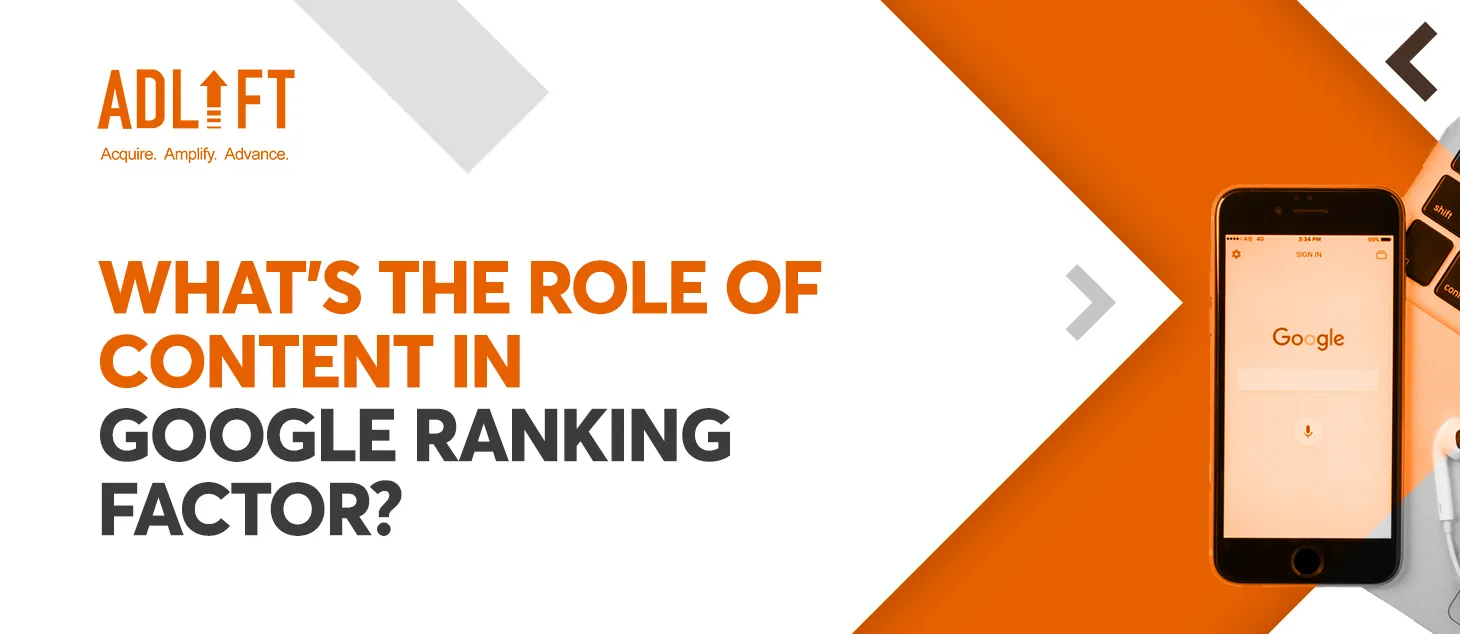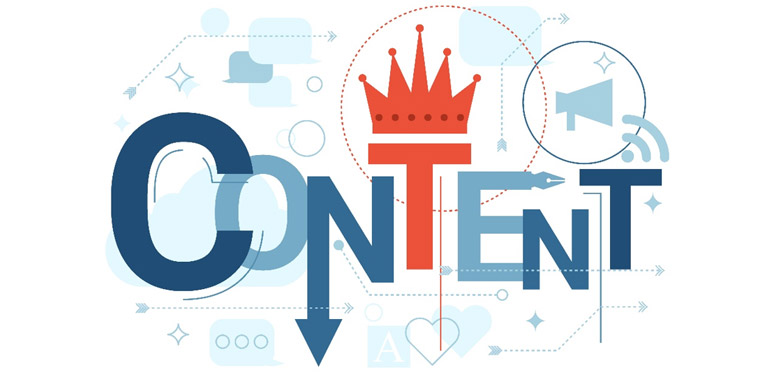Is Content a Google Ranking Factor?

Yeah, yeah; content is the king and the kingdom, but is it a Google ranking factor? Have you ever wondered what unique and SEO-optimized content means to our beloved search engine -Google?
When people claim that content marketers will soon rule the world, they say so for a reason. This is because content is a significant part of digital marketing and SEO strategies. Of course, you cannot implementSEO without any content on your website.
Plus, customers do not get any value if you don’t use any text, imagery, audio or video on your pages. But here comes the real question – is content a Google ranking factor?
Google Ranking Factors – What we Know
Google ranking factors are the criteria applied by Google when evaluating search engine result pages. This is done to decide the best order of relevant results for a search query.
Knowing Google ranking factors is essential for SEO. In fact, all content creators, SEO strategists and marketers should be familiar with ranking factors because they help create a better user experience.
What About the Number of Google Ranking Factors?
There are not just one or two but more than 200 ranking factors. What else? There have been almost thousands of Google algorithm updates since 2006.
With every update, SEO tests have changed. Below are a few Google ranking factors.
- Keywords in domain
- Keyword density
- Page loading speed
- Useful content
- Quality of links
- Length of URL
- Originality of content
- In-depth, high-quality content
- Bounce rate
Oh, that’s a lot of talk around content. And even for factors that do not contain the term ‘content’ ultimately depend on it! For instance, there can be no keyword density without placing content on your page.
What are the Most Important Google Ranking Factors?
Undoubtedly, with a robustonline presence in paid and organic search results, you can improve visibility for your brand. But for that, you require a good google ranking.
Let’s look at the most important Google ranking factors!
Page Speed
Nobody has enough patience to wait for pages with a longer load time to open. This can consequently lead to a high bounce rate.
Did You Know?
The bounce rate goes up to 38% if the page load time is 5 seconds. It goes up to 59% if the page load time is 8 seconds!
Indeed, page speed is an important factor as users want a smooth experience. If the page takes too long to load, the bounce rate will increase, and the ranking will decrease. So, make sure that your pages have a good speed.
Internal Links
Search engines work by crawling and indexing different content pieces on the website. These crawlers use internal links to analyze and index the information correctly.
Not sure what internal links are? These are hyperlinks that point to internal pages on your website.
URL Structure
The URL may seem simple, but how you style it can significantly impact your search engine ranking.
A jumbled URL doesn’t do a good job of helping the search engine learn about the page.
Do you know what is an SEO-friendly URL? It is the one that follows a simple structure, has the target keyword and is concise. But is placing a keyword necessary?
Well, when the search engine says so! Google states –
“URLs with words that are relevant to your site’s content and structure are friendlier for visitors navigating your site”.
And the Most Important – High-Quality Content
Let’s clear the air about content as a Google ranking factor. Content somewhat tops the list when it comes to the most important Google ranking factors.
If you can create unique, helpful and original content for users, Google will rank it higher on search engine result pages.
Google is indeeda sucker for high-quality content. No matter how optimized your site is, if the content quality is poor, you can simply not expect high rankings.
So,What is Quality Content for Google?
Unique, Original and Valuable
Google prefers content that is unique and valuable. You should create content that answers users’ queries and is original.
And no, don’t even think of copy-pasting the content as it can negatively impact SEO. To begin with, Google won’t index and rank your webpage. And if you continue posting copied content, Google will slow down the crawling.
Fresh and Up-to-Date
Another way to boost the quality of content is by keeping it updated and fresh. By adding new information regularly, you send a positive signal to the search engine.
Content freshness plays a major role in covering topics that involve news or trends. Google prefers that pages provide the latest information for such topics.
For example, if you put up content about the global health crisis, Google wants you to add recent news and research.
Content Structure
Besides freshness and uniqueness, you should also focus on the content structure. If you write blocks of content, believe us; nobody would read it.
For this reason, you should stick to smaller paragraphs with a maximum of 3-4 lines, just like we do (wink, wink)! Make sure to use multiple headings and subheadings in your content (H2, H3, H4) to group it.
But is There any Evidence if Content is a Google Ranking Factor?
No, there isn’t any.
But can you search for anything without content? Umm, we don’t think so. Content is paramount to how search works and is examined by Google in several different ways.
Our Verdict on Content as a Google Ranking Factor
It’s crystal clear. Premium content really matters to Google and is an important ranking factor. But we also know that churning out high-quality content that is fresh and unique may not be everyone’s cup of tea.
Don’t worry.
You can always connect with a content writing agency, such as AdLlift, to get content that ranks and sells. We are the masters of creating content that prioritizes the audience’s needs, contains rich keyword phrases and persuades readers to consider your brand before everyone else.
Good content is waiting for you – fill out our form today!
Categories
Recent Posts
- Understanding the Google December 2024 Spam Update: What You Need to Know December 31, 2024
- Beware of Ongoing Scams Involving Fake AdLift Representatives December 31, 2024
- Facebook vs Twitter: Which Platform Wins for Your Marketing Goals? December 30, 2024
- The Art of Naming Conventions in Marketing Campaigns: Best Practices for Clarity and Success December 26, 2024
- Is Your Content Strategy Working for You — or Against You? December 19, 2024
- 2024 Google Search Trends in India: What Captured Our Curiosity This Year? December 19, 2024
- AdLift’s 2025 Social Media Calendar: Your Roadmap to Success December 17, 2024
- Understanding Google’s December 2024 Core Update: What to Expect December 17, 2024
- Optimizing For Google AI Overviews: What Marketers Need To Know November 19, 2024
- Google’s Latest Shake-up: November 2024 Core Update November 13, 2024
Get
in Touch
Contact AdLift for a 360-degree marketing plan



